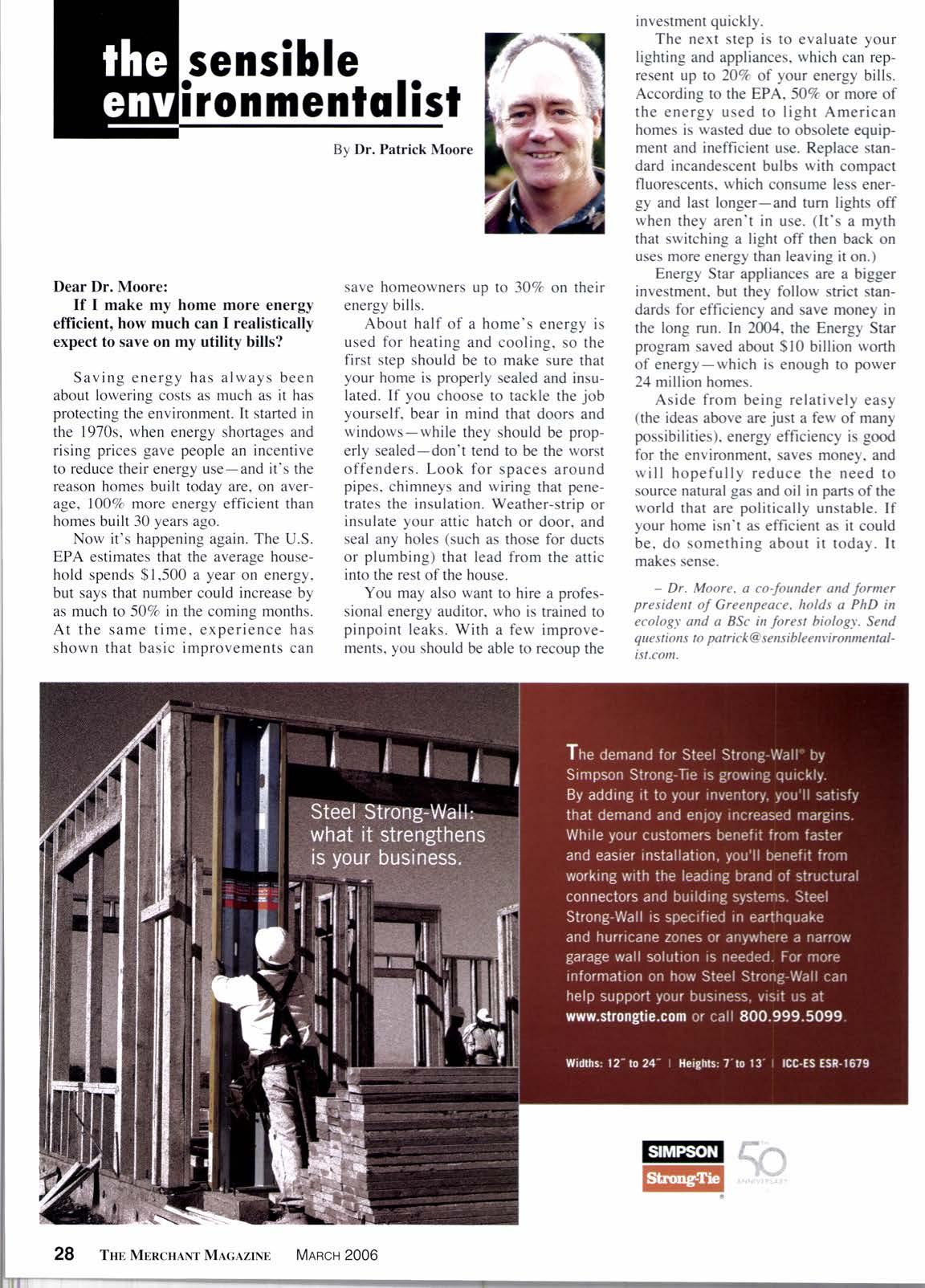
1 minute read
sensible ronmenlolist
By Dr. Patrick Moore
investment quickly.
The next step is to evaluate your lighting and appliances. rvhich can represent up to 2OVc of your energy bills. Accordin-e to the EPA. 5O% or more of the energy used to light American homes is rvasted due to obsolete equipment and inefficient use. Replace standard incandescent bulbs rvith compact fluorescents. rvhich consume less energy and last longer-and turn lights off rvhen they aren't in use. (It's a myth that srvitching a light off then back on uses more energy than leaving it on.)
Dear Dr. Moore:
If I make my home more energy efficient, how much can I realistically expect to save on my utility bills?
Saving energy has always been about lowering costs as much as it has protecting the environment. It started in the 1970s, when energy shortages and rising prices gave people an incentive to reduce their energy use-and it's the reason homes built today are, on average, lO}Va more energy efficient than homes built 30 years ago.
Now it's happening again. The U.S. EPA estimates that the average household spends $1,500 a year on energy. but says that number could increase by as much to 50Vo in the coming months. At the same time, experience has shown that basic improvements can save homeorvners up to 30Vc on their energy bills.
About half of a home's energy is used for heating and cooling. so the first step should be to make sure that your home is properly sealed and insulated. If you choose to tackle the job yourself, bear in mind that doors and rvindorvs-rvhile they should be properly sealed-don't tend to be the rvorst offenders. Look for spaces around pipes. chimneys and rviring that penetrates the insulation. Weather-strip or insulate your attic hatch or door, and seal any holes (such as those for ducts or plumbing) that lead from the attic into the rest of the house.
You may also want to hire a professional energy auditor. rvho is trained to pinpoint leaks. With a few improvements. you should be able to recoup the
Energy Star appliances are a bigger investment. but they follorv strict standards for efficiency and save money in the long run. In 20(X. the Energy Star program saved about $10 billion rvorth of energy-rvhich is enough to power 24 million homes.
Aside from being relatively easy (the ideas above are just a ferv of many possibilities). energy efficiency is good for the environment. saves money. and rvill hopefully reduce the need to source natural gas and oil in parts ofthe rvorld that are politically unstable. If your home isn't as efficient as it could be. do something about it today. It makes sense.
- Dr. Moore, a co-founder and fornrer president of Greenpeace, holds a PhD in ecologr and a BSc in forest biology. Send questiorts to patrick@ sensibleenvironmentaltsl.com.










